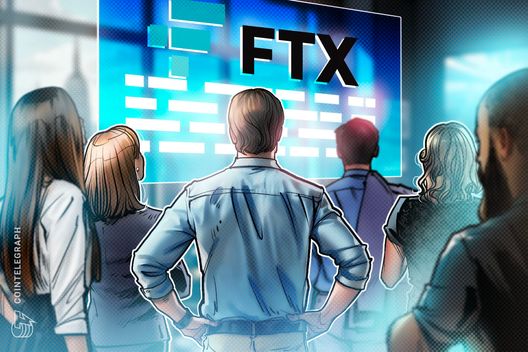The ongoing saga of FTX’s bankruptcy continues to unfold, revealing stark realities for creditors eagerly awaiting payouts. As the financial landscape shifts, Sunil, a representative for the affected creditors, has shared concerning insights regarding the anticipated returns.
“Creditors may find themselves receiving only a fraction of their expected payouts when we adjust for the current prices of Bitcoin, Ether, and Solana,”
These reflections underscore the dramatic fluctuations in the cryptocurrency market, which can significantly influence the recovery efforts for those left in the wake of FTX’s collapse. As Bitcoin, Ether, and Solana navigate their own price volatility, the implications are clear: many creditors may need to brace for disappointing payouts. The broader ramifications of this revelation could ripple throughout the cryptocurrency industry, impacting investor confidence and prompting further discussions about market stability and regulatory oversight.
FTX Creditors’ Expected Payouts
Key points regarding the potential payouts for FTX creditors:
- Discrepancy in Expected Payouts: Creditors may receive significantly lower payouts than anticipated.
- Impact of Cryptocurrency Prices: Current prices of Bitcoin, Ether, and Solana directly affect payout amounts.
- Creditor Representative Insight: Sunil’s statement highlights the uncertainty surrounding financial recovery.
- Potential Financial Loss: Creditors might face substantial losses as adjusted values reflect market volatility.
- Broader Implications: This situation may underline the risks associated with cryptocurrency investments and market dependency.
FTX Creditors Face Uncertain Recovery as Cryptocurrency Values Fluctuate
The unfolding situation for FTX creditors paints a challenging picture amid volatile cryptocurrency markets. According to Sunil, a representative for the creditors, the anticipated payouts could be significantly diminished when factoring in the current valuations of major cryptocurrencies like Bitcoin, Ether, and Solana. This news underscores a stark reality that many stakeholders may only recoup a fraction of their initial expectations.
In a parallel case, Voyager Digital’s bankruptcy proceedings, while similarly impacted by cryptocurrency market dynamics, have offered more structured pathways for creditor recovery through asset sales and a clearer liquidation plan. While Voyager’s approach may establish a more reliable framework for payouts, FTX’s predicament highlights a disadvantage where creditors now grapple with unpredictable asset values that could extend recovery timelines and diminish the total amounts received.
Creditors looking to FTX for a potential financial rebound might find themselves in dire straits as fluctuating prices compound their uncertainty. The current climate, characterized by the capricious nature of digital assets, favors those with a more diversified approach or who have invested in more stable cryptocurrency alternatives. However, for investors heavily weighted in Bitcoin, Ether, and Solana, this volatility could yield detrimental effects, especially as thought leaders in the crypto space urge diversification to mitigate risk.
This predicament may also benefit hedge funds and investors who operate strategically within the cryptocurrency landscape, as they tend to thrive on price fluctuations. Conversely, retail investors and individuals with limited financial literacy could find themselves at a significant disadvantage in the FTX scenario, facing losses while lacking the insight to navigate a tumultuous market effectively.















